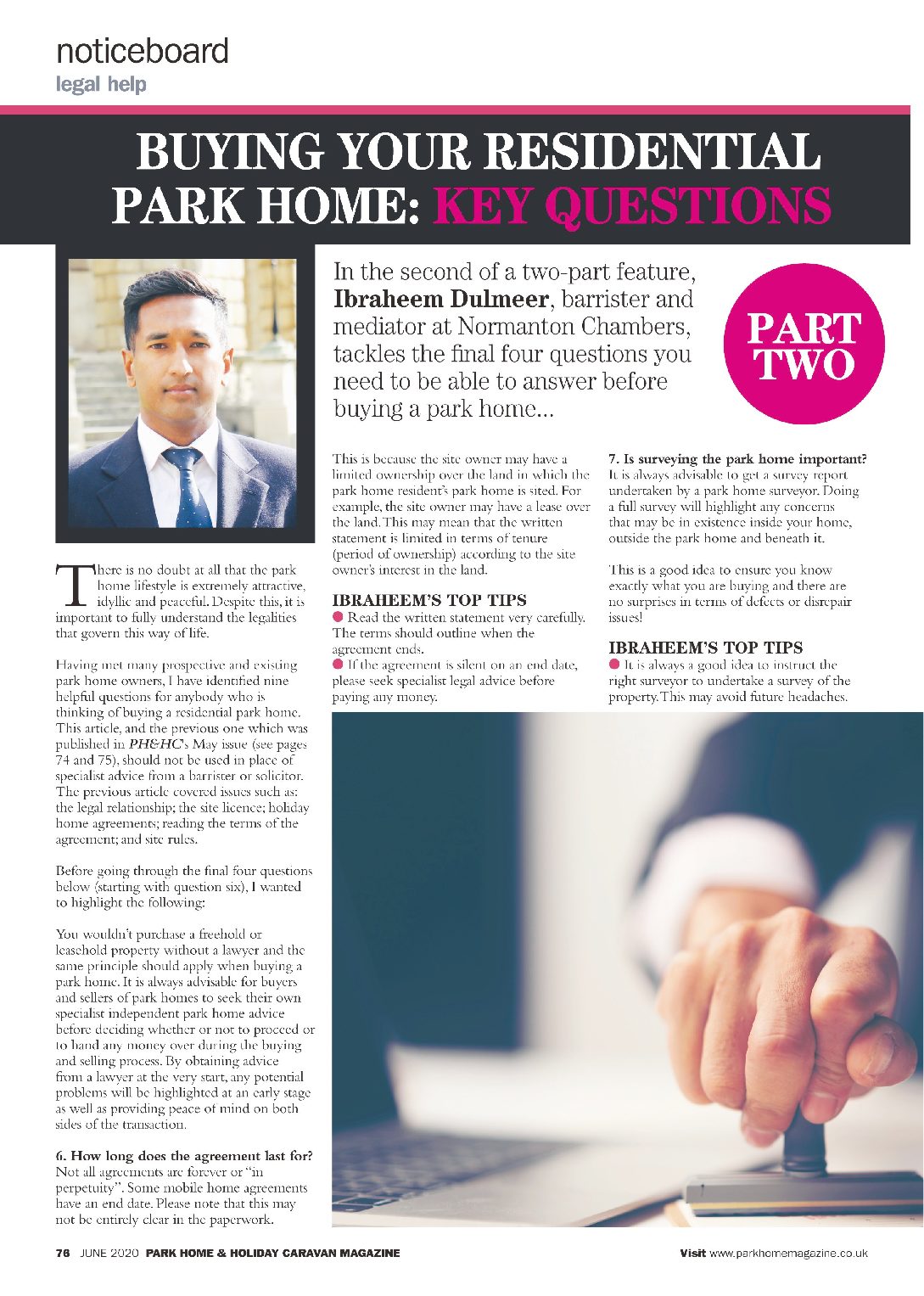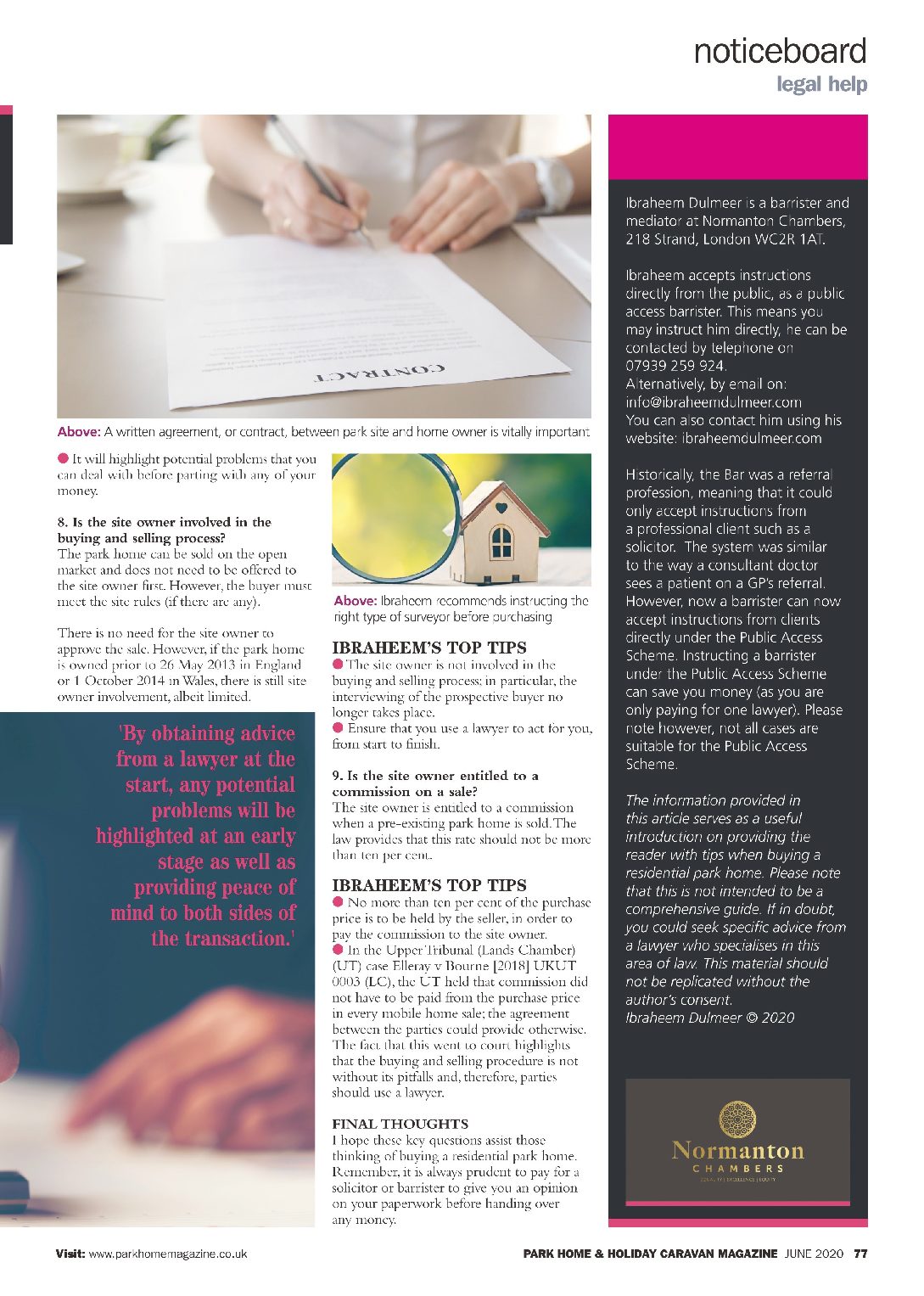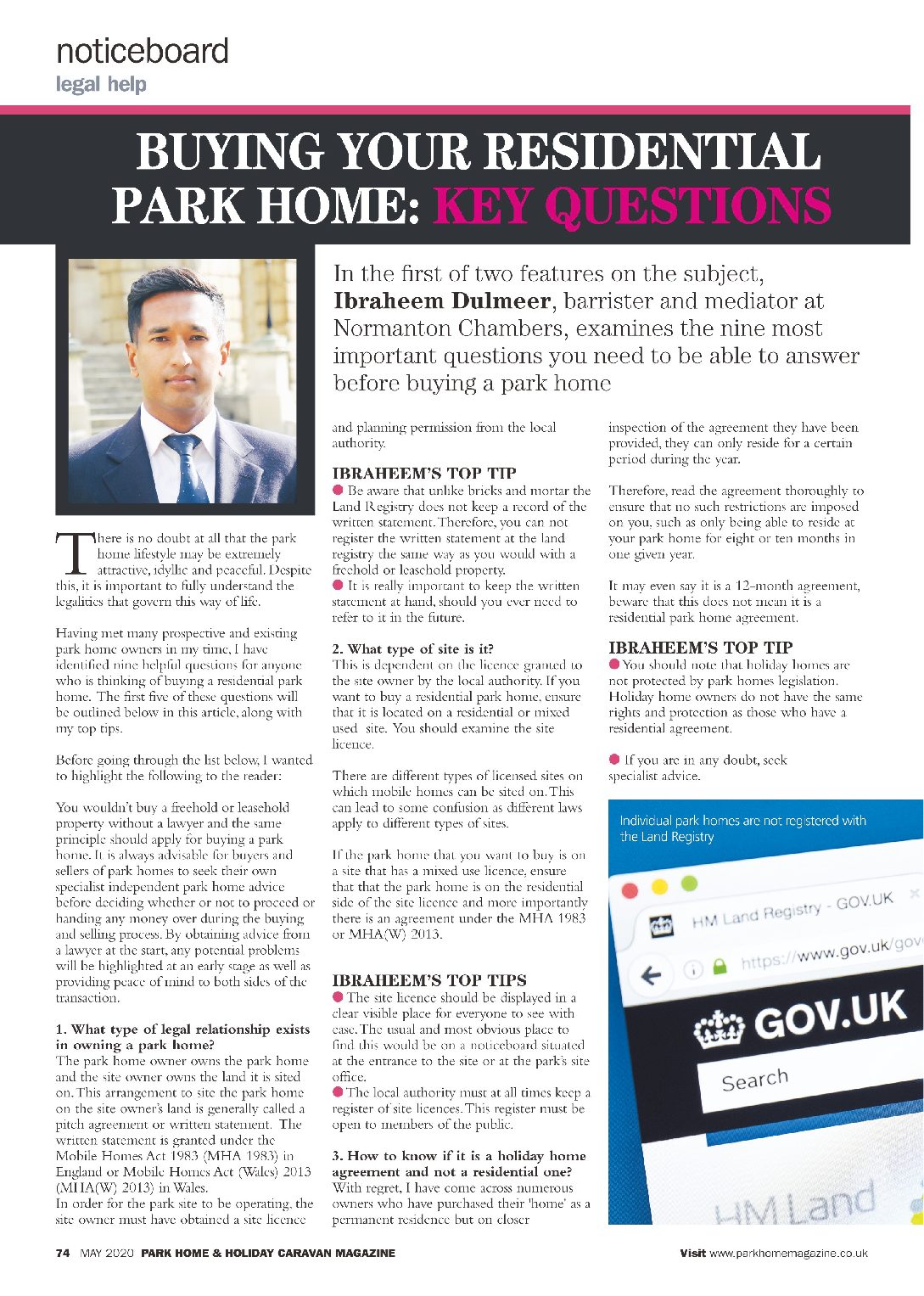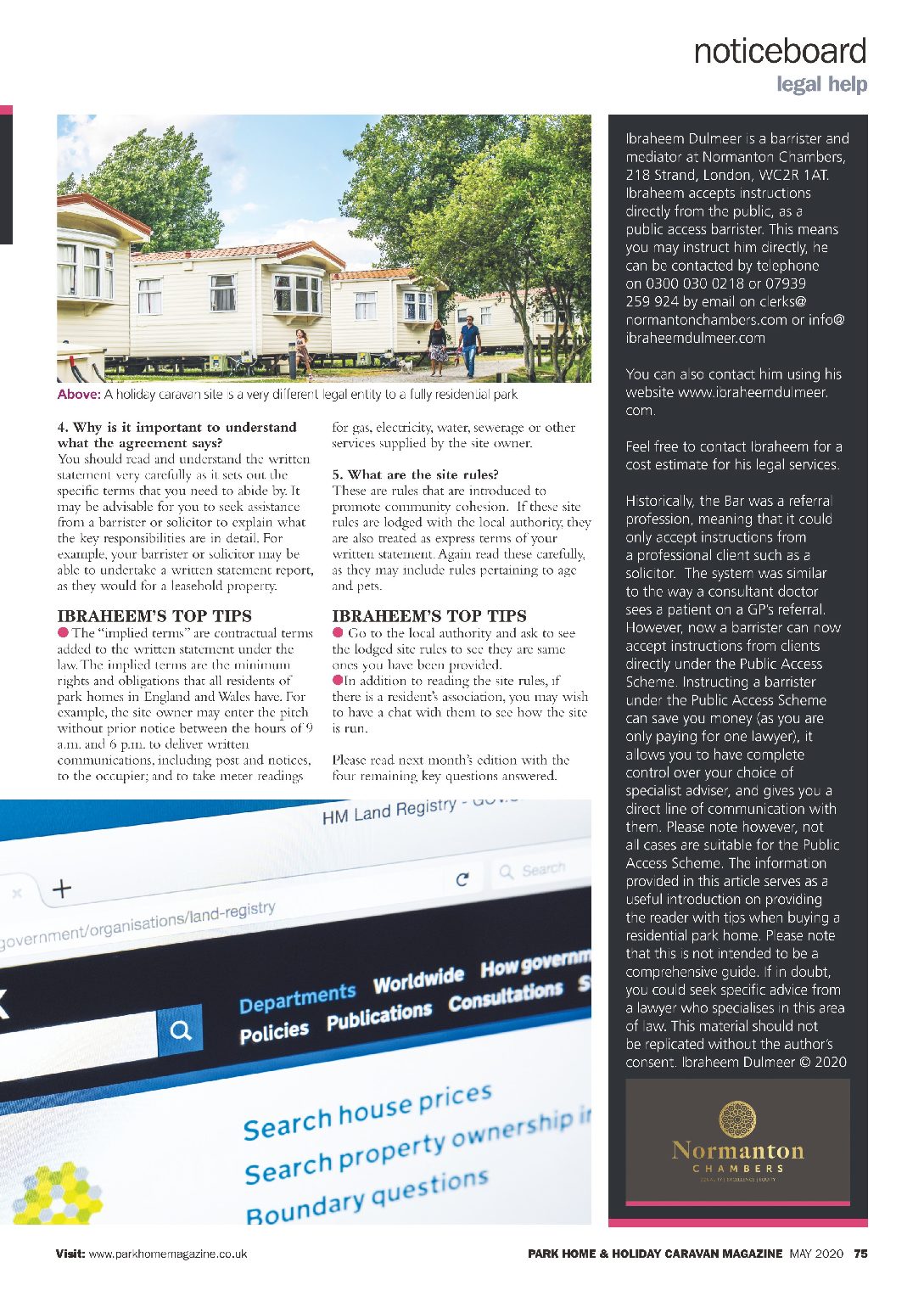





Flexible judicial deployment deals with the longstanding problem of what has officially been described by “legal ping-pong”, where courts and tribunals transfer and re-transfer cases back and forth, confusing both parties and their legal advisers in equal measure.
The basic premise with ‘double hatting’ is that all aspects of a dispute are determined on the same day by a judge wearing the different jurisdictional ‘hats’ of a County Court Judge and a Tribunal Judge. The idea is to simplify matters, reduce costs, speed things up and provide consistency.
There is no Practice Direction about flexible deployment in property cases. There is no widely available template for County Court directions to initiate flexible deployment. Some First-tier Tribunal panel areas have circulated suggested draft directions to local judiciary and the Association of Leasehold Enfranchisement Practitioners are producing model directions for enfranchisement disputes. But other than that, guidance is very thin indeed.
In the first appeal from a ‘double hatting’ case, namely Avon Ground Rent v Child [2018] UKUT; [2018] H.L.R. 44, at para 45 of the judgment, Holgate J states that:
“It is…essential that where a judge acts on the same occasion both as a judge of the FTT and as a judge of the County Court, that judge is very clear in his or her own mind as to which “hat” is being worn in relation to each aspect of the decision-making process, and that he or she maintains and articulates a clear distinction at all times between the discrete functions and roles being performed.”
In Avon v Child, the Upper Tribunal went even further, suggesting the directions should be identifying discrete issues at an early stage, at para 81:
“When a transfer order is drawn up care needs to be taken to see that it identifies the specific matters being transferred, that those matters do fall within the FTT’s jurisdiction and that they fall within the scope of the power to order the transfer.”
It is therefore important to get things right at the directions stage in the County Court. For example, it is not uncommon to see directions which purport to “transfer” issues to the F-tT that were plainly intended to be “allocated” to an F-tT judge or vice versa. Even tribunals can be unsure about whether County Court directions are intended to initiate ‘double hatting’ and it is sometimes necessary to revert to the County Court judge to clarify matters.
Conclusions
Flexible judicial deployment is here to stay. It gives rise to procedural challenges, particularly given the absence of any formal guidance – as well as a number of substantive issues which are being worked through to this day.
The full version of this article will be available in a future edition of the Landlord and Tenant Review.
This was co-written with Mark Loveday, Tribunal Judge and Barrister at Tanfield Chambers.

The coronavirus pandemic has left many holiday caravan owners and park owners in limbo. The question discussed in this article is “must I pay for my pitch fees?”.
There are 2 aspects that have to be looked at very carefully in order to understand this situation better.
1. What does your agreement say?
2. What are facts of the matter or context?
What options do you have?
I shall outline a few options with dealing with pitch fees that may help caravan owners avoid being in breach of their agreement or avoid the termination of the caravan agreement.
Paying:
Firstly, you may wish to pay the sums “under protest”. This may deal with any consequences of non-payment might result in. However, it is dependent on your particular facts if you will be able to recover these sums in a court.
Having a chat:
Park owners are reasonable and often helpful people, which leads me to say that it may be an idea to negotiate with the park owner. As Churchill famously said, “To jaw-jaw is always better than to war-war”. A letter of comfort may help clarify what has been agreed, which may be a “reduction”, “deferral” or “holiday” of the pitch fee.
Mediation:
Mediation is a key form of Alternative Dispute Resolution is ever so relevant in these concerning times. It is an “alternative” to having a decision imposed by a judge in a court and is a voluntary process and those that wish to participate may be able to get their needs, concerns and interests met.
Legal action:
Please note that court action should be considered the very last port of call for both parties concerned.
What is relevant is the Health Protection (Coronavirus, Restrictions) (England) Regulations 2020. This provides that no person may leave the place where they are living without reasonable excuse. Visiting your holiday home would not cover reasonable excuse.
Another question that is being asked is “has the caravan agreement been frustrated?”.
The legal doctrine of frustration “occurs whenever the law recognises that without default of either party a contractual obligation has become incapable of being performed because the circumstances in which performance is called for would render it a thing radically different from that which was undertaken by the contract… it was not this that I promised to do.”
Whether this argument or alternative arguments are applicable to the holiday sector is yet to be seen. What is certain is that the contractual terms are essential! This means you should seek specific advice on the terms of your caravan agreement and your circumstances on how to approach matters going forward.
Concluding remarks:
There is no doubt at all that the unlocking phase of the coronavirus will bring significant challenges for all of us. It is clear if caravan owners and park owners work together, things can work. The writer hopes that the options outlined above are of some assistance but should not be substituted for specific advice.
The information provided in this article serves as useful guidance and is not intended to be comprehensive advice for your particular matter. If in doubt, you could seek specific advice from a qualified lawyer. This material should not be replicated without the author’s consent. Ibraheem Dulmeer © 2020
This article is accurate as of 7 May 2020.

Mediation an Alternative to Litigation in Lockdown and Beyond
Mediation, a meeting or meetings, joint and private between people in dispute chaired by a mediator to assist in reaching a joint resolution, manufactured and agreed by the participants.
The trite saying that Mediation is a key form of Alternative Dispute Resolution is ever so relevant in these concerning times. It appears that the court lists will be further stretched and cases will take even longer to be heard. Mediation is and remains a quicker, more cost-effective approach to resolving disputes and importantly can be completed remotely. Participants reach their own decisions and do not have a declaration forced upon them, owning the process is empowering. Each mediation is unique as the “process” is always a flexible one, allowing participants to express themselves fully in a safe environment.
A mediator can bring a clear mind to the process. Sometimes matters need clarity when very complex or have been ongoing for several months or years. A fresh pair of eyes that encourages alternative thinking, with no advice given.
Moreover, if the mediator has knowledge of the sector the dispute involves, although not essential, this empowers deep questioning leading to alternative thinking, enabling participants to create ideas for a settlement.
The mediation process allows participants to discuss their real needs and weaknesses. These needs may not even be central to the dispute at times, but can be of significant importance. Each participant may have different requirements that can fit into a final resolution without compulsion.
“More than 90% of people leave the mediations expressing satisfaction with the process – a consumer rating that would be envied in most sectors of commerce”. Practical Mediation by Jonathan Dingle & John Sephton (2017)
There is no doubt that whatever issues you are facing, parties could benefit from mediation and thus avoiding costly litigation and time-consuming ongoing disputes, especially during a lockdown.
What are the advantages of mediation over litigation?
Mediation is cost effective: Costs run at a fraction of that of litigation and are usually shared equally by participants.
Mediation is quick: Matters can come to mediation far quicker than they would to court and generally will be resolved on the day of mediation.
Emotional Advantage: Because individuals have been involved in the process and ultimate resolution, any trauma is greatly reduced, especially given that litigation can cause an ongoing stress for months even years.
Mediation is personally satisfying: It is lead by the participants with the guidance of a professional mediator. Individuals are involved in determining the process and the resolution. This means that the participants are at the heart of the mediation of process.
Mediation is not statutory: A decision is never forced upon the people involved.
Mediation is without prejudice: Mediation is not part of the public court and matters discussed in the meetings cannot be used in subsequent litigation.
Mediation is confidential: Matters discussed with the mediator in private sessions will remain confidential between the individual and the mediator, unless express consent is given to disclose information.
Mediation is voluntary: All participants agree to take part in the process.
Remote Mediation:
Mediation can take place remotely during the pandemic (and thereafter of course!) by using video conferencing facilities such as Zoom or Skype. The process is the same, participants can be in breakout rooms with advisors and also come together in the main virtual meeting room. Confidentiality is assured.
Concluding remarks:
There is no doubt that mediation a very positive way of resolving disputes, especially during these tumultuous times.

The Tribunal Procedure (Coronavirus) (Amendment) Rules 2020 (“Statutory Instrument”) have bought about some changes to various Tribunals. In particular, to the leasehold sector the Statutory Instrument makes changes to the Tribunal Procedure (First-tier Tribunal) (Property Chamber) Rules 2013and Tribunal Procedure (Upper Tribunal) (Lands Chamber) Rules 2010.
These changes have been made as part of emergency measures to mitigate against the impact of COVID-19 on the First-tier Tribunal (Property Chamber) (“F-tT”) and Upper Tribunal (Lands Chamber) (“UT”). They are designed to be temporary in nature during this pandemic and will be subject to review by the Tribunal Procedure Committee.
The two main effects are:
(1) Paper based decision may be at the direction of the F-tT but not the UT; and,
(2) F-tT and UT hearings will be held in private where they cannot be broadcasted or accessed by the public.
Paper based decisions:
The temporary rules allow the F-tT to make a decision which disposes of proceedings without a hearing if it is satisfied that:
(a) the matter is urgent;
(b)it is not reasonably practicable for there to be a hearing (including a hearing where the proceedings would be conducted wholly or partly as video proceedings or audio proceedings); and
(c)it is in the interests of justice to do so.
The Statutory Instrument allows the F-tT to make a decision on the papers without the parties’ consent. This amendment will reduce the risk of infection between Tribunal users, HMCTS staff and the Judiciary by allowing more decisions to be made on the papers. Notably this does not apply to the UT.
Private Hearings
Both the F-tT and UT have a power to conduct remote hearings, either video or audio proceedings, in private if it is not practicable for that hearing to be broadcasted or accessed by a media representative.
Those hearings which are conducted in private must be recorded, where it is practicable, in a manner directed by the Tribunal. Therefore, it is important to note that recordings should not be made secretly.
Section 55 of the Coronavirus Act 2020 makes provision for the public to observe hearings that proceed via remote technology. This may be impracticable given that the Court or Tribunal building may not have the technology to allow for this. This would be impossible for all remote hearings to be accessed by the public through either video or audio technology. Therefore, this Statutory Instrument will allow the F-tT and UT to direct remote cases to be heard in private if they cannot be broadcasted and accessed by the public, to ensure the proper administration of justice.
Final thoughts:
The world is changing rapidly and in turn, the legal landscape will respond with various amendments. The above mentioned temporary measures are important to be aware of. The author wishes everyone is safe during these difficult times.
This was first featured on the News On the Block Website


